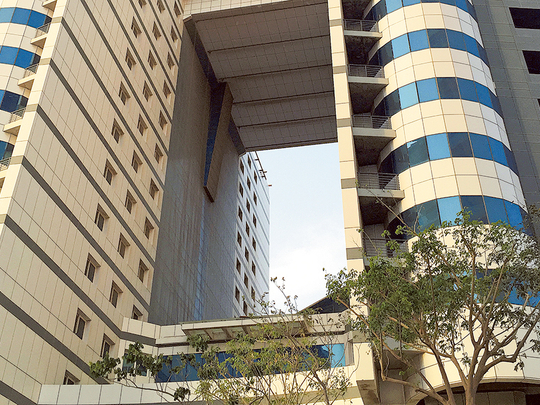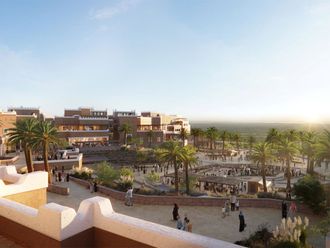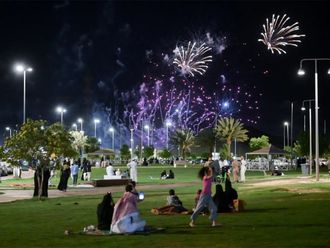
Dubai: The Palm Jumeirah is getting a new hotel to add to its hospitality offerings: the Dukes Oceana, Dubai.
Located on the trunk of The Palm, the 273-room hotel will be part of a project that includes two residence buildings featuring 185 studios and 42 one-bedroom apartments. The buildings are present, with the hotel set to get mechanical, electrical and other works.
The 240,000 square foot development, which has been launched by Dubai-based luxury property developer and holding company, Seven Tides, costs Dh650 million.
The hotel and residences are expected to be handed over by the first quarter of 2016. The hotel will be the first Dukes Collection-branded property outside the UK, and will target mainly leisure guests. It is expected to be more than 70 per cent occupied during its first full year of operations.
“There is no point in opening a hotel like any other hotel in the city. We wanted to reposition ourselves and create something iconic,” Abdullah Bin Sulayem, chief executive of Seven Tides, said on Wednesday at a press conference in Dubai.
Going on sale April 14, the studios, measuring between 286 and 652 square feet, are priced from Dh760,000, while the 782 to 834 feet apartments start from Dh2.1 million.
Bin Sulayem said that the Palm is “a successful area for hospitality.” Seven Tides owns the Anantara Dubai The Palm Resort and Spa. The area has attracted strong interest from other international hotel chains, including Accor, which operates Sofitel Dubai The Palm Resort and Spa, and Rixos Hotels, which manages Rixos The Palm.
Expansion
Bin Sulayem told Gulf News on the sidelines of the conference that Seven Tides will invest around $50 million (Dh184 million) for acquisitions this year. It is looking to enter the Maldives with a resort through a joint venture or independently. It bought boutique hotel Dukes London in 2006.
The company expects to announce a major project in Dubai by the end of the year that includes a beach resort, villas and apartment buildings. Bin Sulayem declined to provide additional details.












